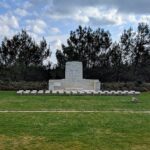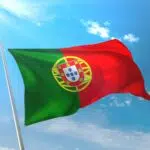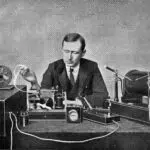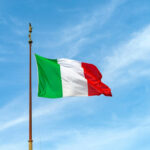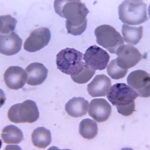Freedom Day in Portugal takes place on April 25 to commemorate the Carnation Revolution that took place in the country. The day marks the beginning of a bloodless coup that ended the dictatorship in the country and honors the establishment of democracy in Portugal. It is a public holiday and a day of great celebration in the country. Portuguese nationalists fill the streets with the colors of Portugal’s flag, and educational demonstrations are planned across the country to educate the younger generations about the history of Portugal’s struggle for independence.
History of Freedom Day (Portugal)
Portugal commemorates the anniversary of its independence on April 25. The day is marked with parades, demonstrations, and nationalistic celebrations across the nation. After decades of brutal dictatorship that brought about censorship, discrimination, and suppression, the Portuguese army joined hands with rebel groups and overthrew the government.
Portugal’s struggle for independence commenced in the mid-1900s. Numerous issues encumbered the citizens of Portugal in the late 1960s. Portugal’s military expansion required soldiers, which resulted in the mass illegal migration of young men from the country. The revolution gained steam after citizens were informed of the bloated military budget. Subsequently, there rose an intense desire to end Portugal’s expansion and colonial projects that were draining the country’s resources. The joint chiefs of the army decided to overthrow the government. The coup began on April 24, 1974 with the primetime playing of the Portuguese song ‘E depois do adeus’ sung by Paulo de Carvalho, which alerted the rebels to begin the coup. This was followed by a broadcast of ‘Grandola vila morena,’ a song banned by the radio at the time. In a surprising turn of events, the official guards of the presidential palace dropped their weapons and joined hands with the rebel groups.
Nearly five decades of dictatorship came to an end in 1974. Although civilians were instructed to stay put at home, thousands of proud Portuguese flooded the streets to support the military insurgency. People gathering outside the presidential palace placed carnations from the local market into gun muzzles, which is why the day is also remembered as the Carnation Revolution.
Freedom Day (Portugal) timeline
Portugal sides with the Allies in the Second World War and becomes a founding member of NATO.
Portuguese Dictator António de Oliveira Salazar dies and is replaced by Marcelo Caetano.
The Caetano government is overthrown by rebels, and General António Ribeiro de Spinola assumes the presidency.
The Military Council of Revolution declares the end of insurgency, and the civilian government resumes operation.
Freedom Day (Portugal) FAQs
What is Portuguese Freedom Day?
Freedom Day, natively known as ‘Dia da Liberdade,’ commemorates the overthrow of the dictatorship in Portugal in favor of a democratic system of governance.
Is April 25 a public holiday in Portugal?
April 25 is celebrated as Freedom Day in Portugal to commemorate the anniversary of the Carnation Revolution.
What is the Carnation Revolution?
The Carnation Revolution refers to the celebration that ensued in the streets of Portugal after a military coup that successfully ended the decades-long dictatorship in the country.
How to Observe Freedom Day (Portugal)
Plant carnations in your backyard
The carnations are delightful bright pink flowers that make for a charming celebratory bouquet. They also have an important place in Portugal’s history. Mark the anniversary of the Carnation Revolution by making carnations a part of your garden.
Learn the ‘fado’
‘Fado’ is a genre of Portuguese music that emphasizes the idea one cannot escape their fate. ‘Fado’ songs have melancholic tunes and lyrics that evoke resignation and loss. Learn a couple of ‘fado’ tunes to get the gist of this genre of Portuguese music.
Feast on conventual sweets
In Portugal, monks and nuns make traditional sweets such as ‘pasteis de nata,’ ‘papu-de-anjo,’ ‘pasteis de Belém,’ and ‘ovos moles.’ No celebration or mourning is complete without a serving of these. Some of them may not be easy to bake, but they bring delight in every bite — the perfect way to celebrate Portugal’s Freedom Day.
5 Enchanting Facts About The Portuguese
The Portuguese love football
The Portuguese love football, and their best import is superstar footballer Cristiano Ronaldo.
An old city with a young soul
Lisbon has been inhabited for nearly 3,000 years, preceding the establishment of the national borders of Portugal.
The longest dictatorship in Europe
The Portuguese endured the longest authoritarian regime in Europe, which lasted for almost six decades.
Port wine and coffee
The Portuguese lead the world in the export of port wine and the consumption of bite-sized expressos.
It’s a great place for a holiday
Portugal is one of the most sought-after places for a vacation, ranking in the 20 most-visited countries in the world.
Why Freedom Day (Portugal) is Important
It’s a crucial day in Portugal's history
Although centuries of documented history precede the glorious Carnation Revolution, it was on April 25, 1974 that the countrymen swarmed the streets to celebrate the end of 800 years of authoritarianism. What started in the year 1143 with the establishment of King Afonso I’s regime ended with the exchange of pink carnations between civilians and the military.
It celebrates the Portuguese spirit
Europe’s history is filled with uncountable bloody wars. Portugal’s struggle for freedom stands out because of the non-violent coup led by the elite military members who switched sides in the favor of the nation. The Carnation Revolution is a testament to the Portuguese spirit and a constant inspiration to rebels worldwide.
Portugal is a work in progress
Being one of the last countries in Europe to gain full autonomy, Portugal continues to battle with novel challenges that are unknown to its neighbors. Nevertheless, the Portuguese have proved their valor and their support for a fair and democratic system of governance that values religious liberty and freedom of expression.
Freedom Day (Portugal) dates
| Year | Date | Day |
|---|---|---|
| 2026 | April 25 | Saturday |
| 2027 | April 25 | Sunday |
| 2028 | April 25 | Tuesday |
| 2029 | April 25 | Wednesday |
| 2030 | April 25 | Thursday |





